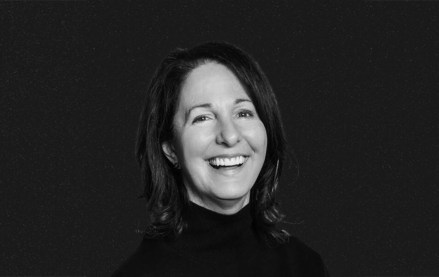Brands push for apolitical influencers to avoid ‘backlash’ as U.S. presidential election looms

For nearly the past decade, Brittany Bright has been reviewing influencer and content creator contracts, ushering them through the negotiation process with brands.
For the most part, clauses around content have stayed the same around election cycles, according to Bright, founder of The Influencer League, a digital platform specializing in influencer education and management. For example, brands have required contracted influencers and creators to honor a quiet period around campaign work, limiting content that is deemed political or unaligned with the brand.
However, as the U.S. election season looms this year, brands are more adamant than ever about working with apolitical influencers to ensure brand safety, she said. “This is actually the first time that I’ve seen some brands double down as much as they have,” Bright said.
Recently, Bright was working with a lifestyle content creator that Bright did not name to ink a five-figure deal with an unnamed healthcare brand. The ink had just about dried before the deal fell through, she said. In contract negotiations, the brand asked the creator to steer clear of any political content from the start of the campaign in September through January 2025. It was unclear what was deemed political content and ultimately, the creator didn’t commit.
“There were not a lot of guardrails for us to follow and we didn’t want to be in a situation where she breached the agreement unknowingly,” Bright said. The two parted ways amicably, she said.
DeAndre Brown, a social media star with more than one million TikTok followers, noted a similar experience on X. After posting a picture with presidential candidate Kamala Harris, he was turned down for a brand deal. Brown tweeted the interaction and used it as a call to register to vote. (Brown’s talent agency, Kensington Grey, declined to make him available for comment.)
It’s a pressure some influencers and content creators say they’re increasingly facing in today’s highly polarized society: Be politically neutral and get paid or walk away from a deal to vocalize personal opinions.
Pressure on both sides
Even reposting a political meme feels like a danger zone, said Mollie Daniela, a full-time lifestyle and fashion content creator with more than 140,000 followers across TikTok and Instagram. Out of her most recent contracts with brands, only one has established parameters around political content, outlining no political content seven days before and seven days after the campaign, she said. (Daniela did not provide specific details.) Still, it worries her.
While pressure mounts from brands looking for political neutrality, pressure is also mounting from social media users increasingly asking influencers to speak out on social justice issues and news events. Influencers and creators seem damned if they do and damned if they don’t.
“It’s: Speak out, but don’t speak out if you want to pay your rent, but speak out if you want to be a morally accepted creator, but don’t speak out if you want to be able to pay your bills,” Daniela said.
Financially speaking, influencers and creators are in a peculiar position. Full-time creators at least partially rely on brand deals for revenue. Turning down a lucrative brand deal isn’t always a viable option.
Goldman Sachs’ 2023 forecast expects the creator economy to approach half a trillion dollars by 2027. Influencers and creators have been clawing at bigger pieces of the pie, seeking standardization for payment terms with brands and stretching 15 minutes of viral fame into long-term careers as media personalities.
According to Linktree’s 2022 report, only 12% of full-time creators made more than $50,000 annually with 46% of full-time creators making under $1,000 a year. Part-time creators don’t fare much better, as only 3% of part-time creators make more than $50,000 a year, leaving 68% making under $1,000 annually, per the report. Linktree’s 2023 report states that the average monthly revenue paid to creators has increased by more than 25%. (The report did not include specific figures.)
Daniela isn’t alone in her sentiments. Influencers and creators say it’s a tightrope, striking the right balance between authenticity and what brands consider brand-safe.
Amanda Johnson, a Texas-based lifestyle creator with just over 37,000 followers on TikTok and Instagram, said her social media presence has always been inclusive of her political stance, sharing information and educational content with her followers. In light of today’s highly politicized and polarized social climate, work has slowed, she said. In the first six months of this year, Johnson landed between 3-5 brand deals, she said. Since then, the deals have been much smaller, like gifting requests, where an influencer is gifted product in exchange for a post.
Jazmin Griffith, a full time creator, social media consultant and founder of que lo queue, which is a social agency, has more than 340,000 followers across Instagram and TikTok. She said with brand stipulations, work can often feel less like a partnership and more like a traditional advertisement. “Overall now it’s very, very hard to stay authentic and very true with brands because of all the nuances and all the things that they do and don’t want you to talk about. They’re afraid of backlash,” she said.
And perhaps, that fear is for good reason.
A complete 180
In the aftermath of the Black Lives Matter movement, brands made public statements and commitments around social justice issues, embracing diversity and denouncing things like hate speech. Then came the Bud Light fiasco. Last year, the beer brand partnered with Dylan Mulvaney, a transgender social media influencer and activist. The backlash was swift with calls for boycotts, leading to financial ramifications.
Brand safety and political stances have become even more conflated. Tension has been increasing with right-wing communities and activist investors, like political commentator and filmmaker Robby Starbuck, pressuring brands to roll back socially motivated messaging. Since then, major brands like Harley Davidson, Lowe’s, John Deere and, most recently, Molson Coors, have all taken a step back from social justice issues, opting for a more politically neutral stance.
“People don’t want to hear certain brands’ opinions on … things going on in the world or politics. It’s just not quite the place unless they have the right to be there,” said Bette Ann Fialkov, a consultant who specializes in influencer marketing, celeb and brand partnerships.
When she’s searching for influencers for brand partnerships, she checks for red flags, like excessive language, illicit drug usage or overt politics, she said. In recent months, she’s had a client part ways with an influencer for content deemed too political.
Personally, she said, the occasional post educating followers about societal or political issues isn’t a red flag. But the last thing a brand wants is to be tagged in a post alongside a politically charged issue because of their work with an influencer, she added.
It’s a big change from just a few years ago, in which several brands were awarded for their social justice campaigns. Nike won an Emmy for its “Dream Crazy” ad work with Colin Kaepernick in light of the Black Lives Matter movement. Dove was awarded the Grand Prix winner in the Print and Publishing category at Cannes Lions for its “Courage Is Beautiful” campaign featuring photographs of healthcare workers, during the Covid-19 pandemic. Meanwhile, Google took home the Mobile Grand Prix for its “Real Tone” spot at the Cannes Lions International Festival of Creativity 2022. The spot focused on diversity and accuracy of skin tone representation in photos.
But these, Fialkov said, may be the exception to the rule.
“A lot of brands are not driving culture forward and they can’t afford to have a misstep,” she said. “There’s the brands that are willing to be bold and go out on a limb. But most brands are not like that. Most brands can’t afford to lose the people on the other side.”
Slow to judge
The matter may become a stalemate for some brands and influencers — a brand unwilling to risk backlash and an influencer unwilling to remain apolitical in today’s social landscape. Either way, it’s not a decision influencers are making lightly, according to Kara Perez, full-time content creator and author of “Green Money.”
Perez herself said she hasn’t lost out on any brand deals due to her content. She mostly focuses on financial education with the occasional news bit given finances often tie in with political policy, she said. The request to be apolitical doesn’t come often. But if and when brands do send over contracts asking for a quiet period this election season, she’s inclined to push back, making the parameters work for her, she said.
However, that’s easier done for a creator like Perez who diversified her revenue stream, de-prioritizing brand deals and instead prioritizing workshops, one-on-one consulting, speaking engagements, courses and Patreon.
She holds empathy for her fellow creators, especially those who rely on brand deals for income, because, there’s no way to please everyone — especially in an election cycle.
“There’s nothing worse than, as a creator, getting branded as a complete sellout or someone who’s a total phony,” Perez said. “Because then nothing you say, whether it be about politics or what size dress you should buy, is believed.”
More in Marketing

Ad Tech Briefing: Start-ups are now table stakes for the future of ad tech
Scaled ad tech companies need to maintain relationships with startups, when the sector is experiencing ongoing disruption due to AI.

Inside Kristi Argyilan’s RMN playbook: Lessons from the ‘godmother’ of retail media
Uber’s global head of advertising Kristi Argyilan says the future of retail media hinges on real-time relevance, brand differentiation, and breaking free from a one-size-fits-all playbook.

Digiday+ Research: More than half of marketers invest in TV and streaming, with an eye on impressions and branding
The majority of marketers are directing ad spend toward TV, with a focus on ads that drive impressions and branding.








